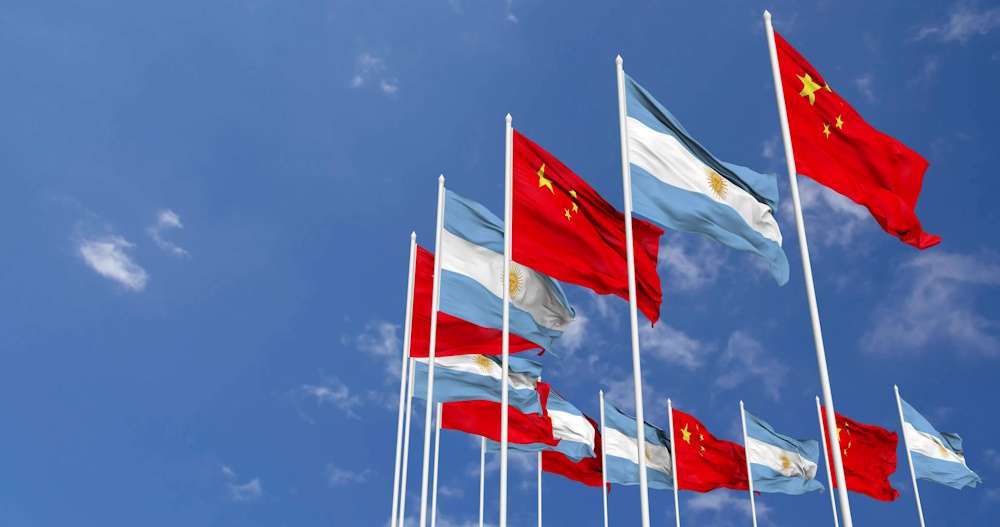Javier Milei’s strained relations with China are hindering private-sector business activities. Regrettable remarks from Argentina’s President and his exaggerated portrayal of the relationship with US President Donald Trump have obstructed crucial efforts that sustain trade continuity. While the rhetoric has been moderated in Argentina, Beijing and its investors are anticipating a definitive action: either a presidential visit and a meeting with Xi Jinping, or, if that is not feasible, the arrival of a senior official. The libertarian government would demonstrate an appreciation for a relationship that has been cultivated over decades. “It’s a verticalist country so somebody high-ranking is needed to make the trip with a serious formal agenda to show interest,” expressed one source connected to the Asian nation, in conversation with Perfil. In the private sector, there are concerns that trade is impeded by phytosanitary protocols or unresolved issues regarding technical agreements. This underscores the significance of timing amid the trade conflict with the United States, particularly in light of the unexpected remarks from US Treasury Secretary Scott Bessent concerning the currency swap and the urgency for Argentina to terminate it promptly.
According to data from the INDEC national statistics bureau, China ranks as Argentina’s second-most significant trading partner, reflecting a deficit of US$1.055 billion in March. The industrial superpower maintains investments across fifty percent of our nation’s provinces. Primarily, in strategic sectors capable of generating hard currency, such as mining, fossil fuels, or agribusiness. During his initial 16 months in office, Milei has made nine trips to the United States, which ranks as Argentina’s fourth-most significant trading partner, while he has not visited China, the second-most important partner.
The Casa Rosada is implementing a strategy of complete alignment with Washington, aiming for a reciprocal trade agreement, even if this incurs some degree of friction within the Mercosur regional trade bloc. Foreign Minister Gerardo Werthein exemplifies the prevailing priorities: a former ambassador to the United States and a member of one of Argentina’s most influential business families, wielding significant power within the country. Werthein has yet to secure his entry into the Asian superpower. The most recent minister to visit Asia was former foreign minister Diana Mondino, who made a brief trip in April 2024. Sources connected to global power dynamics characterized the agenda as “informal” and “low political voltage” in Beijing. Simultaneously, Central Bank Governor Santiago Bausili and Finance Secretary Pablo Quirno were engaged in discussions to extend Argentina’s currency swap, which was approaching its deadlines.
Days later, in France, while on the same international mission, Mondino blurted her unfortunate phrase —”The Chinese are all the same”— which muddied the libertarian administration’s only gesture up until then. Another short circuit was the former minister’s overtures to Taiwan. The most recent official to visit the country led by Xi Jinping was Juan Pazo, the current head of the ARCA (formerly AFIP) tax bureau and a former secretary of industry and commerce. Late last year, Presidential Chief-of-Staff Karina Milei was slated to attend the Chinese Export and Import Trade Fair; however, she did not embark on the journey.
In the interim, the sole occasion on which Milei engaged in a handshake with Xi occurred during the G20 summit held in Río de Janeiro. A point of uncertainty thus far in the Milei presidency is the funding that China has yet to provide to recommence the construction of the hydro-electric dams in Santa Cruz: Jorge Cepernic and Néstor Kirchner. Out of the planned credit amounting to US$4.7 billion, merely US$1.8 billion has been disbursed.
One of the dams, the Cepernic, has reached a completion rate of 40 percent. Business sources involved in the project, as reported by Perfil, indicate that “negotiations are underway to advance” in the mega-works and to reach an agreement aimed at resolving the technical issues that impede progress. The analysis encompasses the reassessment of expenses incurred due to the suspension of construction, excluding any payments to Gezhouba Group Corp, the principal shareholder.
Additionally, other projects are currently suspended, such as the rehabilitation of the Belgrano Cargas freight railway line, which involves an investment of US$800 million, as well as direct investments in 12 mining projects funded by the Asian nation, seven of which pertain to lithium.

